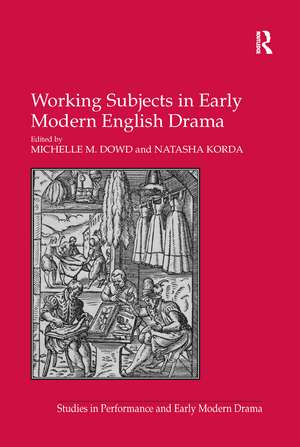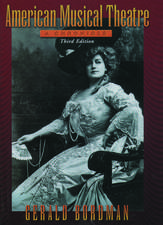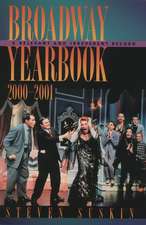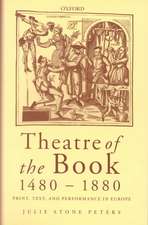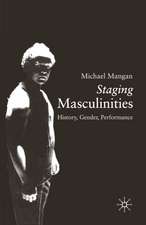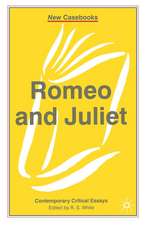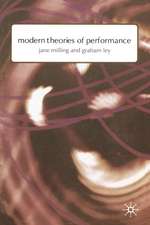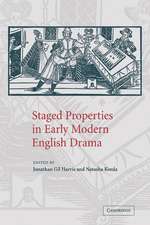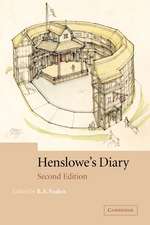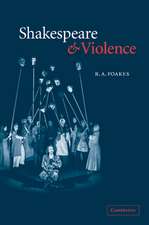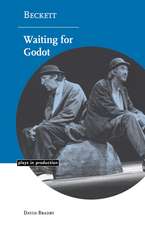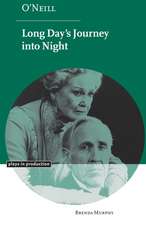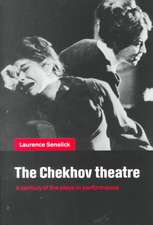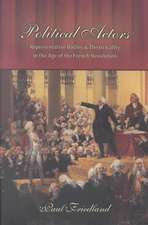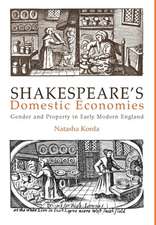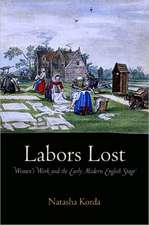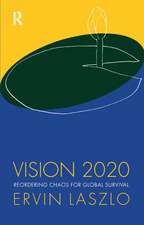Working Subjects in Early Modern English Drama
Autor Natasha Korda Editat de Michelle M. Dowden Limba Engleză Paperback – 9 sep 2016
| Toate formatele și edițiile | Preț | Express |
|---|---|---|
| Paperback (1) | 489.26 lei 6-8 săpt. | |
| Taylor & Francis – 9 sep 2016 | 489.26 lei 6-8 săpt. | |
| Hardback (1) | 1109.18 lei 6-8 săpt. | |
| Taylor & Francis – 28 feb 2011 | 1109.18 lei 6-8 săpt. |
Preț: 489.26 lei
Nou
Puncte Express: 734
Preț estimativ în valută:
93.62€ • 98.45$ • 77.36£
93.62€ • 98.45$ • 77.36£
Carte tipărită la comandă
Livrare economică 17 aprilie-01 mai
Preluare comenzi: 021 569.72.76
Specificații
ISBN-13: 9781138249257
ISBN-10: 1138249254
Pagini: 310
Dimensiuni: 156 x 234 x 17 mm
Greutate: 0.45 kg
Ediția:1
Editura: Taylor & Francis
Colecția Routledge
Locul publicării:Oxford, United Kingdom
ISBN-10: 1138249254
Pagini: 310
Dimensiuni: 156 x 234 x 17 mm
Greutate: 0.45 kg
Ediția:1
Editura: Taylor & Francis
Colecția Routledge
Locul publicării:Oxford, United Kingdom
Cuprins
Contents: Working subjects, Michelle M. Dowd and Natasha Korda; Mythos of labor: The Shoemaker's Holiday and the origin of citizen history, Crystal Bartolovich; Citizens and aliens as working subjects in Dekker's The Shoemaker's Holiday, John Michael Archer; Staging alien women's work in civic pageants, Natasha Korda; Osmologies of luxury and labor: entertaining perfumers in early English drama, Holly Dugan; Englishmen for My Money: work and social conflict?, Tom Rutter; Will Kempe's work: performing the player's masculinity in Kempe's Nine Daies Wonder, Ronda Arab; The rogues' paradox: redefining work in The Alchemist, Elizabeth Rivlin; Desiring subjects: staging the female servant in early modern tragedy, Michelle M. Dowd; Domestic work in progress entertainments, Sara Mueller; 'You take no labour': women workers of magic in early modern England, Molly Hand; Raising Mephistopheles: performative representation and alienated labor in The Tempest, David Hawkes; Custom, debt, and the valuation of service within and without early modern England, Amanda Bailey; The comic-tragedy of labor: a global story, Valerie Forman; Labor and travel on the early modern stage: representing the travail of travel in Dekker's Old Fortunatus and Shakespeare's Pericles, Daniel Vitkus; Afterword: early modern work and the work of representation, Jean E. Howard; Selected bibliography; Index.
Notă biografică
Michelle M. Dowd is an Associate Professor of English at the University of North Carolina - Greensboro, USA. Natasha Korda is a Professor of English at Wesleyan University, USA.
Recenzii
'A strong collection of essays on both canonical and non-canonical dramatic entertainments from the English Renaissance, Working Subjects in Early Modern English Drama adds materially to an ongoing conversation in early modern studies.' Douglas Bruster, University of Texas, USA '[An] excellent collection of essays ... the scholars here assembled have seized on what is interesting and culturally revelatory in a refreshingly diverse array of texts.' from the Afterword by Jean E. Howard '[This] book makes three major interventions. One, in moving beyond citizen or city comedies, it considers labour in relation to diverse theatrical forms, including emerging ones such as tricomedies and travel plays. Two... it expands the focus to production and to diverse labouring subjects. Three, the volume illuminates the intersection of local and global economic and cultural networks, a real need in the field.' Renaissance Quarterly ’...One can only admire the ambitious nature of this book and its general success in carrying out its intention.’ Theatre Research International
Descriere
Working Subjects in Early Modern English Drama investigates the ways in which work became a subject of inquiry on the early modern stage and the processes by which the drama began to forge new connections between labor and subjectivity in early modern England. The collection considers how drama actively participated in a burgeoning, proto-capitalist economy by staging England's newly diverse workforce and exploring the subject of work itself.
